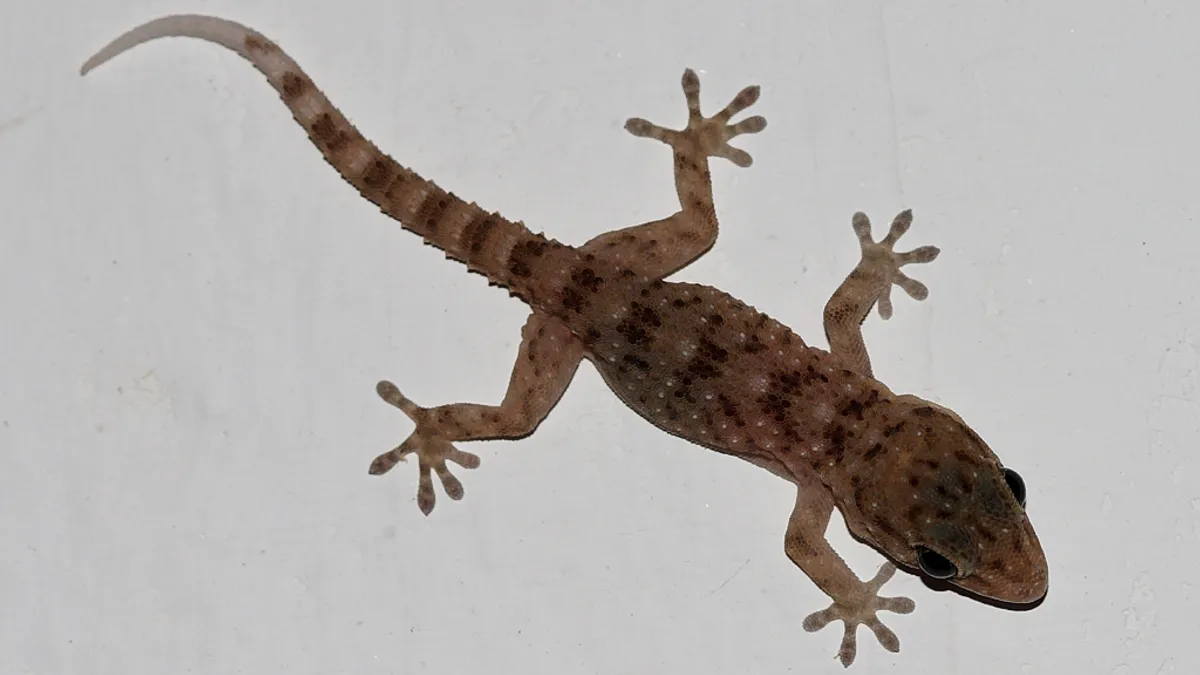Dive Brief:
- One of Ford's biggest sustainability challenges is separating plastic and metal autoparts from foam that is glued to the materials — making recycling almost impossible. Therefore, Ford is looking to create gecko-inspired adhesives that will allow for easy separation of materials.
- The lizard's "toe pads" have the ability to stick to many surfaces without liquid or surface tension. Ford will look at how this can be applied into adhesive innovations for global applications, according to Debbie Mielewski, Ford senior technical leader for plastics and sustainability research.
- Recently, Ford hosted a forum with Procter & Gamble and The Biomimicry Institute for researchers to learn about biomimicry and how to apply it to everyday work.
Dive Insight:
Many municipalities and companies have high aspirations of reaching zero waste, however there are many obstacles that stand in the way of that goal — some of which are seemingly uncontrollable. Strong adhesives are one of those obstacles, creating a recycling challenge to which nobody has a solution. If this innovative, lizard-inspired idea were to launch into a product, its various applications could drastically increase recycling rates across many different industries.
"Solving this problem could provide cost savings and certainly an environmental savings," Mielewski told Environmental Leader "It means we could increase the recycling of more foam and plastics, and further reduce our environmental footprint."
This is not the first time that Ford has been environmentally cautious. In 2013, it was reported that Ford recycled 120 million pounds of old car parts with the Core Recovery Program. Additionally, Ford is the only automaker to use Repreve fiber — made from 100% recycled plastics — in its vehicles.















